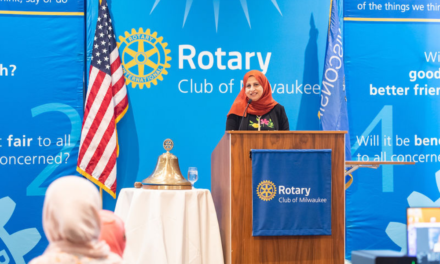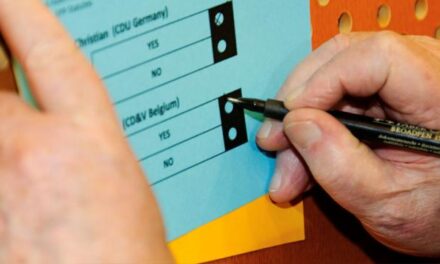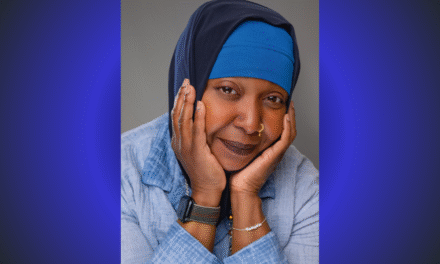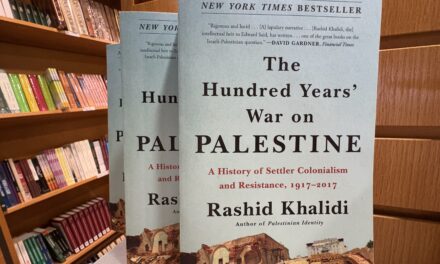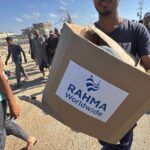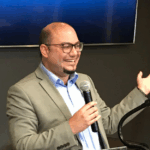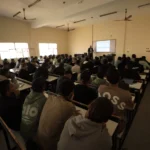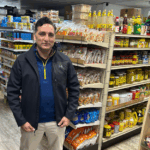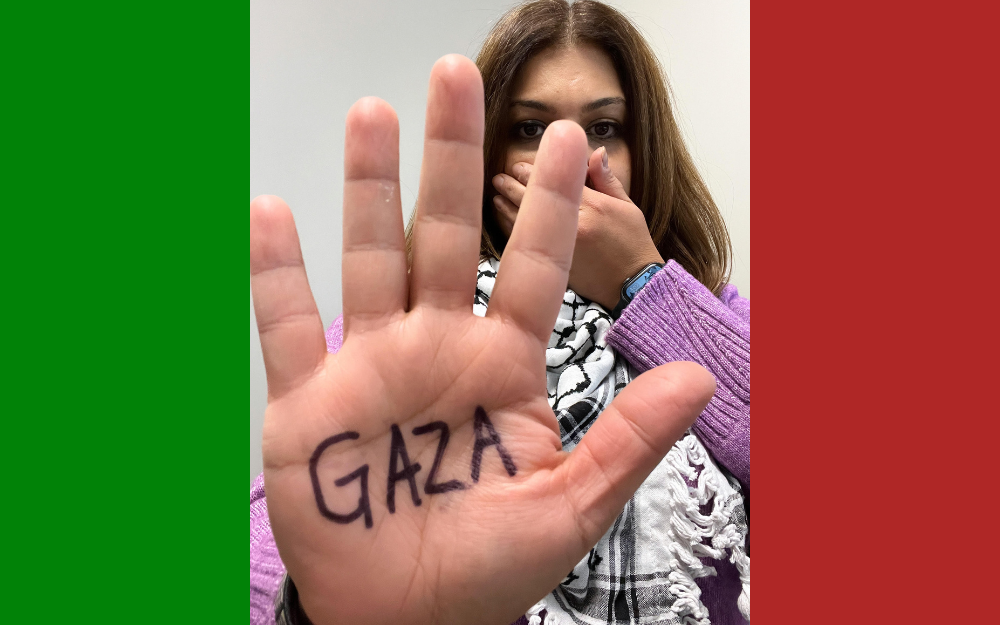
Photo courtesy of Milwaukee 4 Palestine
A lifelong poet, Sawsan Rizeq uses poetry to speak out about the genocide of Palestinians.
Creative expression is fundamental to solidarity movements everywhere. Visual artists, musicians, filmmakers and poets often find their voices in the struggle by creative means, reflecting sentiments that may be too difficult or complex to convey with regular words. Sawsan Rizeq, a Palestinian organizer with the group Milwaukee 4 Palestine, is a lifelong poet who began sharing her work with others for the first time this past year.
“I just want to humanize my people,” Rizeq affirms. “I think that’s what my poetry is now. You would do the same. I don’t know why people forget that.”
Sawsan Rizeq has a Master’s Degree in creative writing from Southern New Hampshire University. She says she tries to write every day for 10 to 15 minutes.
“I always expressed myself best in writing than verbally,” she adds. “It’s therapy.”
Art cultivates a sense of community and interconnectedness, which is precisely what colonial, imperialist powers fear. It effectively becomes the lifeblood of a struggle, linking the lived experiences of one to another and so on. Rizeq cites the watermelon, a symbol of Palestinian resistance, as a prominent example of such.
“Where did the watermelon come from?”, she asks, rhetorically. “No Palestinian flags? OK, then we’ll show our identity through our art. “No, you can’t use those colors.” It became part of the resistance because they took away everything else. People can take away a lot of things from you, but they can’t take away what you learn.”
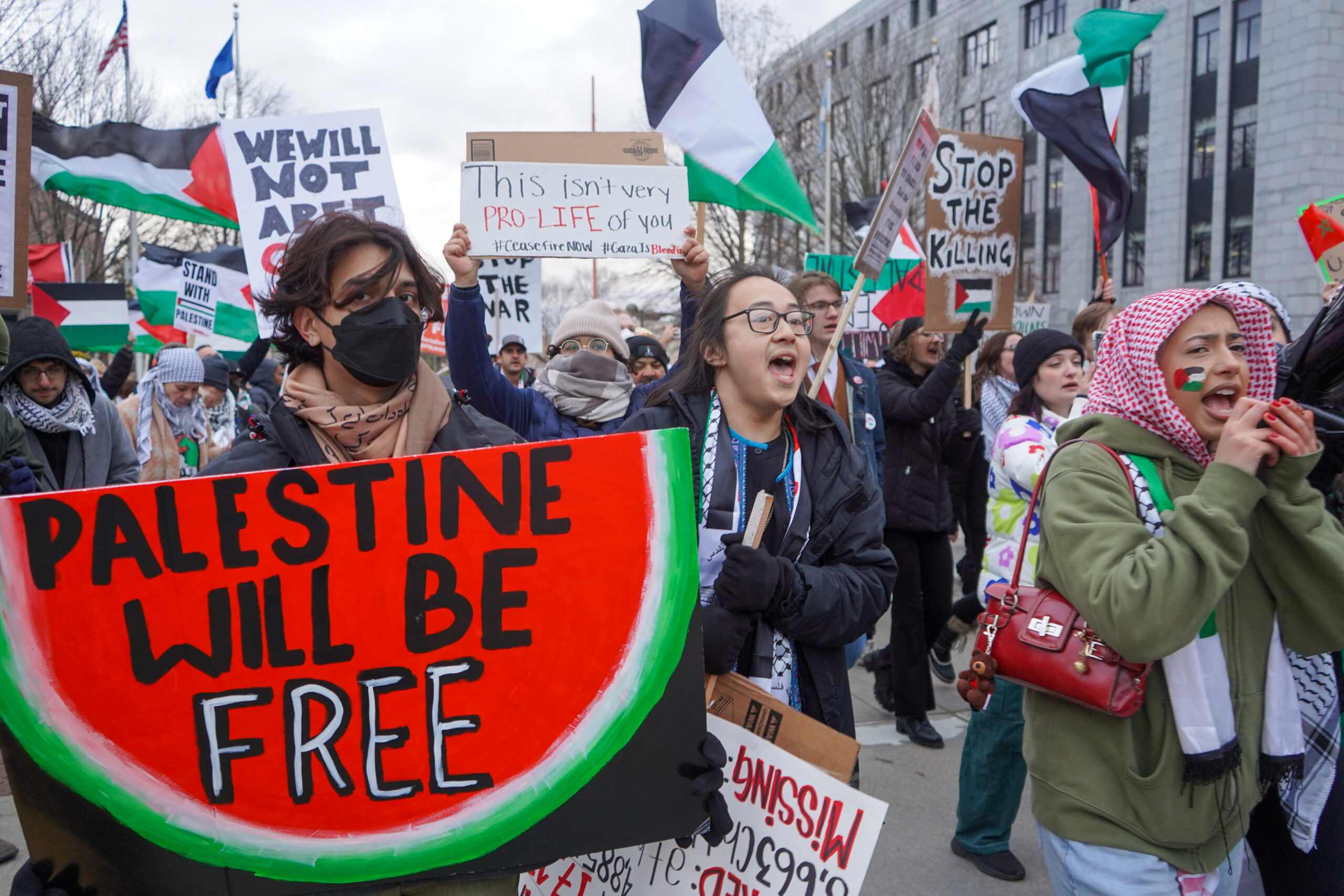
Photo by Kamal Moon
In 2023, the Israeli ministry of National Security banned the Palestinian flag in public places. The watermelon has become an symbolic expression of the Palestinian flag colors to circumvent potential censorship and show solidarity with Palestinians.
“I was stuck in this whirlwind.”
Rizeq has been writing poetry for fun and decompression since she was young, but it was not until after October 7 last year, when the Israeli genocide of Palestine escalated, where she found poetry taking on a much greater role in her life.
She remembers hearing what people were saying on the news and what they were saying at work. “It was like a flashback of my whole life, with the dehumanization of Arabs and how you have to explain yourself. I was stuck in this whirlwind of defending my people and explaining antisemitism.”
Those visceral emotions were difficult to verbalize. The laborious and repetitive conversations where Rizeq felt she had to justify her existence as a Palestinian wore her out.
“People have been taught facts differently, and their textbooks don’t represent the Arab world (or a lot of the world) in an accurate way,” she adds.
Ready to share poetry about Palestine
Rizeq decided to put what she was feeling into a poem. The first one she wrote after October 7, titled We Used to Want Peace, she sent to her coworkers. By reading it, they would hopefully put themselves in a Palestinian’s shoes. It may have been a risky move, but Rizeq could not keep going to work everyday putting on a face. Many ended up receptive to what she had to say.
“We are more than what the news represents about us, and I was so sick of the narrative that it’s two sides that don’t get along,” she continues.
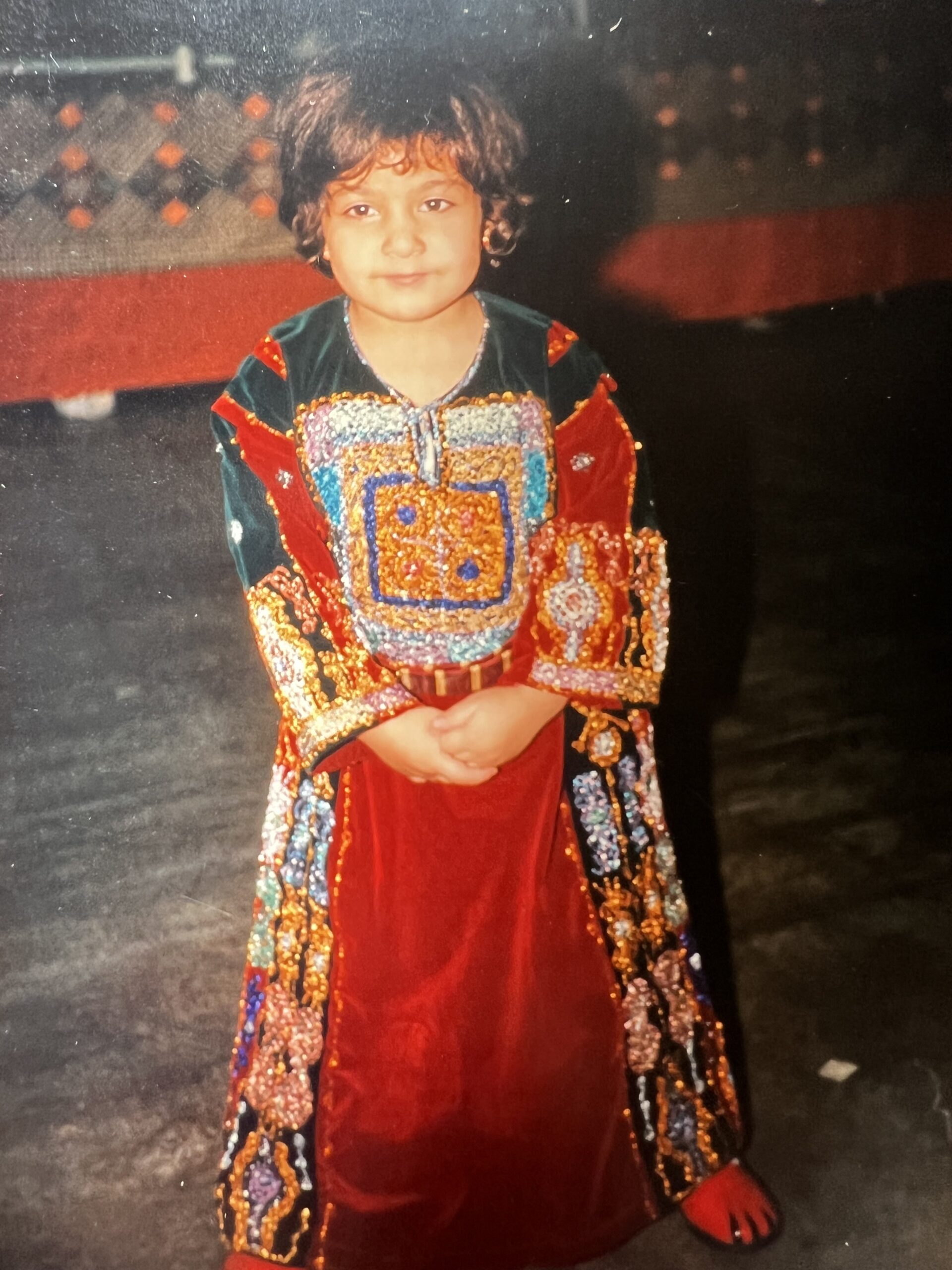
A young Rizeq in Palestine wearing a traditional thobe
Poetry has become not just a personal hobby for Rizeq but an outlet to share stories with others from the lens of a Palestinian woman in diaspora, channeling intense sensations like grief and anger but also joy and hope.
Rizeq attended her first Milwaukee 4 Palestine event shortly thereafter. At a rally held by the group last December at Milwaukee Public Market, she publicly shared We Used to Want Peace on the microphone, recalling, “I didn’t just read it, I screamed it from the depths of my soul.”
Milwaukee 4 Palestine recently launched a divestment campaign against Derco Aerospace, a Lockheed Martin subsidiary that repairs and distributes engines for Israeli’s F-16 fighter jets, the primary aircraft used in Israeli bombardments of Gaza. The group is having periodic demonstrations outside Derco headquarters, demanding that the company immediately halt the repair and distribution of the F-100 engines, terminate their contract with Pratt & Whitney, stop war profiteering and leave their parent company. Follow Milwaukee 4 Palestine on Instagram for updates.
Reminiscing of Palestine
Rizeq typically pieces poems together over time as thoughts, inspirations and metaphors occur to her, which she compiles into notes in her phone. In her poem, What Are We Fighting For? Rizeq details the warm, beautiful imagery of Palestinian homes and lands. She wrote it after seeing video after video of her people in the streets of Gaza, senselessly being forced to prove their grief to the world:
From the blessed earth that gave us fig and olive trees
From the morning rooster to the shepherd praying on his knees
From Hisham’s Palace to the Dome of the Rock
From the sacred churches to the highest mosque
It’s the welcoming fragrance of steamy mint tea
The beautiful shores of the Mediterranean Sea
The detailed stitching of Tete’s colorful thawb
The smell of musk of Jido’s Friday robes
To strangers it’s the hospitality as we break bread
To friends it’s the safety of a place to rest your head
To family, well if you’ve been to a Palestinian home then you know you have a bed
It’s the birthplace of poets like Mahmood Darwish and Rafaat Alareer
The land of extraordinary women like Shireen AbuAqlah, Khalida Jarrar, Muna Kurd and Ahed Tamini
Where the heart thumping stomps of freedom dancing makes the ground shake
Where wedding dabkes keep everyone happily awake
It’s the key to the home we hold on tight
It’s the black and white scarves that drape over us as we fight
It’s the folk songs our mommas sing to us at night
It’s the watermelon with its colors black, red, green and white
Freedom is home and home is free
And in this land forever we will be
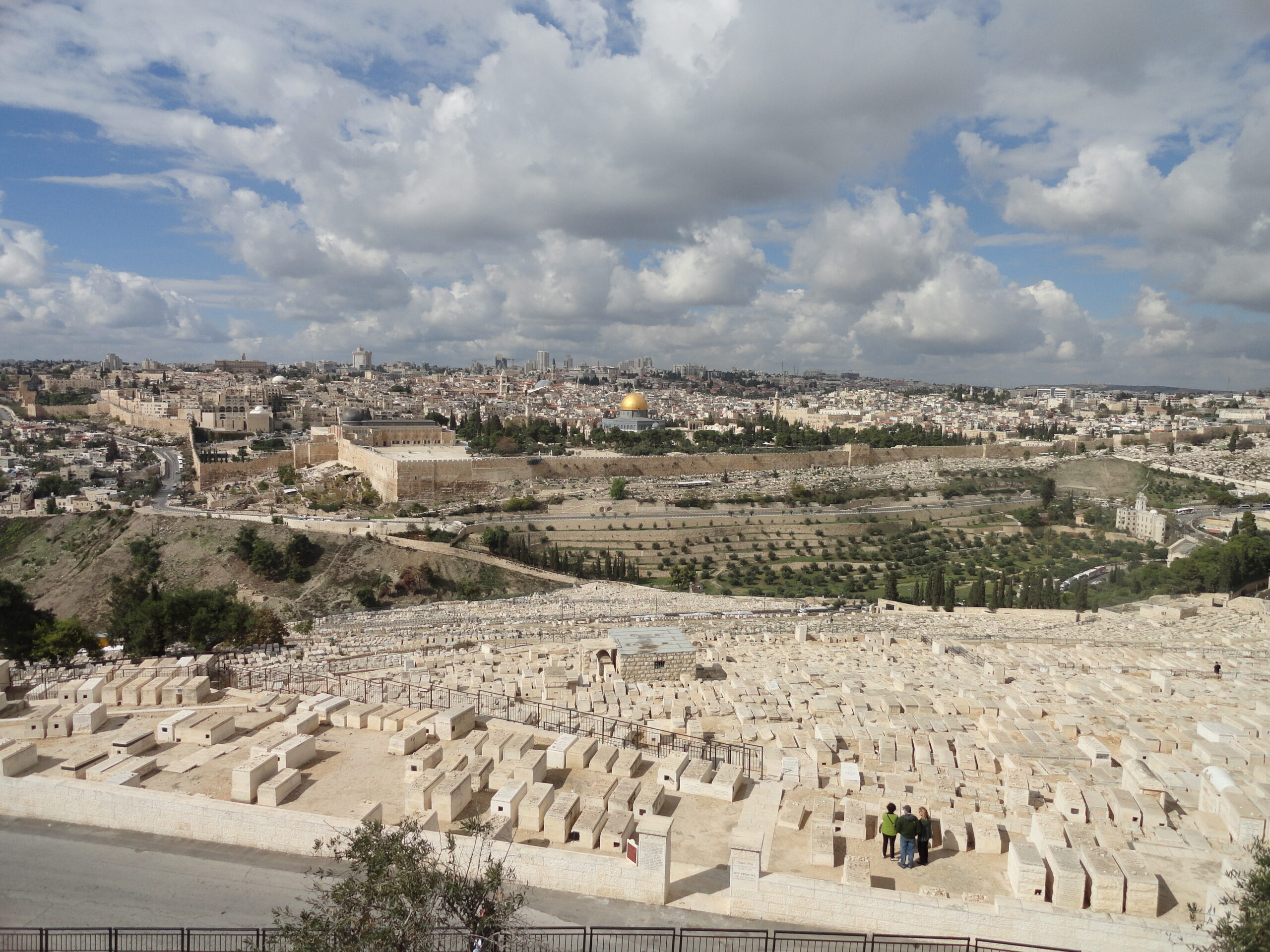
Photo courtesy Dr. Robert Ashmore
Rizeq reminisces of being in Palestine when she was young, standing atop a hill overlooking a valley and calling out her childhood friend’s name, noting that many Palestinians across the diaspora have similar memories to one another. “There’s so much that we collectively love about Palestine, like the smells and sounds,” she explains.
Some pieces Rizeq has written for specific events. For example, “How Do You Tell A Father to Say Goodbye to His Baby Girl?” Rizeq wrote for a march after witnessing a horrible video on social media of a crying father holding his dead daughter. “I wrote that so he wouldn’t just be another story buried in the feed,” she says, tearing up. “I did that for him, and I don’t even know his name.”
In another poem, “I See Sprinkles,” Rizeq yearns for the days of a Free Palestine. She wrote it as an ode to her Milwaukee comrades and community, inspired by seeing Palestine stickers plastered everywhere while on a recent trip to Europe:
One day, you and I will speak of Palestine
And it won’t be of a distressed mother giving birth to her stillborn child
Without her kidnapped husband and without medical care
Instead we’ll speak of a mother feeling safe
As she welcomes her new baby girl
And her doting husband caresses her hair
One day we won’t speak of grandfathers
Bidding farewell to their lifeless grandchildren pretending they’re asleep
Instead we’ll tell stories of elders tucking in rambunctious little ones
With the promises of sweet treats
One day instead of reporting of children being amputated
Under the light of a cell phone and anesthesia free
We’ll rave of their soccer games and childhoods that are carefree
One day maybe instead of digging mass graves
We’ll go back to celebrating graduations and wedding seasons and henna parties
One day without walls, without checkpoints, without military brutality
One day my people will live and die with dignity
I pray every day for those someday’s and maybe’s
And despite the murky waters of racism
Drowning the voices of justice and peace
I see those who go against the monstrous current
Staying afloat, grasping on truth and humanity
I see it, hope through the fog
Like sprinkles of confetti all over towns and cities
It’s a fist pump at a rally
It’s an ally wearing a kuffiyeh to support Pali
It’s the BDS movement staying strong
It’s my fellow comrades pulling me along
You see the sprinkles I see?
It’s not only about freeing them but freeing you and me
From media and manipulation and political lies
As you breathe in, open your hearts and open your eyes
And let’s stay steadfast
Not for those maybe’s but for those will be’s
Let’s continue to make worldwide confetti


Photos courtesy of Milwaukee 4 Palestine
(On left) Representing Milwaukee 4 Palestine, Rizeq speaks in front of Democratic Party office in downtown Milwaukee on June 3, protesting President Biden’s line of a red line after the Rafah refugee camp bombardment.” (On right) On June 30, Rizeq takes the mic at a Unity march with the organizers of UMMA (Unity Milwaukee Muslims for Action) bringing awareness and solidarity between Palestinians and Sudanese.
With that piece, Rizeq affirms that the Palestine solidarity movement is growing and that none of their work is in vain. “That one I was really afraid I was going to break down while I was reciting,” she mentions. “I practice in front of my kids and I break down in front of my kids. I think I do better, surprisingly, in front of crowds than in an intimate setting.”
In February, Milwaukee Liberation Center hosted the event Ounadikom featuring local Palestinian poets Rizeq and Tasneem Jassar as well as traveling Gazan poet Yahya Ashour. A quote from Ashour that night sticks with her: “Don’t expect hope from my poem; I need hope from your actions.”
While not actively pursuing the publication of her work at this time, Rizeq plans to continue reading and sharing her poetry with others as she sees fit. “It’ll just go with the flow of the movement,” she assures. Follow Sawsan Rizeq on Instagram to get in touch.
